分科会概要
Overview of Working Group
分科会2
神経系とその関係組織等生命メカニズムの完全理解による
「心身共に成長し続ける人生の実現」
脳及び末梢神経系全体の神経回路網と関連組織(腸管組織、リンパ管等の免疫系も含む)との関連性については、未だ解明されていないことが多い。これらの解明を目指したサイエンスの開拓領域を推進することは、心身ともに健康を維持する上で極めて重要である。
本分科会では、神経系とその関係組織等から、代謝、免疫、睡眠等の生命メカニズムの解明の糸口を探り、生命現象の統合的理解にブレークスルーをもたらしうる新たな研究開発とMS目標を検討する。
- 主 査:
- 祖父江 元
愛知医科大学 理事長
- 副主査:
- 岡部 繁男
東京大学 大学院医学系研究科 教授
【関連する目標例】
- ・「2050年までに全神経回路網とその関連組織を完全デジタルコピー/モデル化」 を中心に
- ・「2035年までに高齢者のQoLを劇的改善」
- ・「2040年までに予防措置・ウエルネスが主流となる生活の実現」
- ・「2050年までに生命現象をデジタルモデル化し、その制御を実現」
- ・「2050年までに人工冬眠技術を確立」
【登壇者一覧】
講演資料の無断転載・複製を禁じます
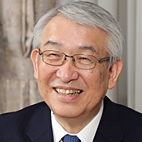
PROFILE
I graduated in medicine and trained as a neurologist at Nagoya University, Japan. I then completed a PhD in neurology at Nagoya University Graduate School of Medicine, after which I became an assistant professor at the University of Pennsylvania, USA, and then a lecturer and an associate professor at Aichi Medical University, Japan. After that I was a professor of neurology and a dean at Nagoya University Graduate School of Medicine. Now I am a chairperson at Aichi Medical University, and I am a designated professor of neurology at Nagoya University Graduate School of Medicine and a director of Brain and Mind Research Center at Nagoya University. I am interested in neurodegenerative diseases, particularly motor neuron diseases and peripheral neuropathies.
岡部 繁男 (分科会副主査)/ 東京大学 大学院医学系研究科 教授
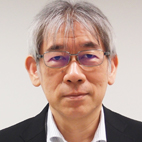
PROFILE
Dr. Shigeo Okabe graduated from The University of Tokyo, School of Medicine in 1986. He obtained Ph.D. degree in 1993 from the Graduate School of Medicine, The University of Tokyo. From 1993 to 1996, he worked as a Visiting Associate in NINDS/NIH. In 1996, he came back to Japan and appointed as a principal investigator in National Institute of Bioscience and Human-Technology in Tsukuba. In 1999, he moved to Department of Cell Biology, Tokyo Medical and Dental University as a professor. In 2007, he was appointed as a professor in Department of Cellular Neurobiology, Graduate School of Medicine, the University of Tokyo. He has been in a position of Program Director/Supervisor in Brain/MINDS project (Japan Brain Initiative) from 2014 and Co-Chair of International Brain Initiative (IBI) from 2019. He also serves as Director of Brain Medical Science Collaboration Division in RIKEN Center for Brain Science from 2018. He received Young Investigator Award (Japanese Association of Anatomists) in 1996, Tsukahara Nakaakira Award (Japan Neuroscience Society) in 2004, and Seto Award (Japanese Society of Microscopy) in 2010.
Ed Lein / Investigator at the Allen Institute for Brain Science/Affiliate Professor, Department of Neurological Surgery, the University of Washington
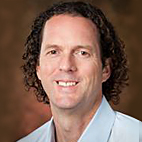
PROFILE
Ed Lein is an investigator at the Allen Institute for Brain Science and an Affiliate Professor in the Department of Neurological Surgery at the University of Washington. He received a B.S. in biochemistry from Purdue University and a Ph.D. in neurobiology from UC Berkeley, and performed postdoctoral work at the Salk Institute for Biological Studies. He joined the Allen Institute in 2004 and has led the creation of large-scale gene expression atlases of the adult and developing mammalian brain as catalytic community resources, including the inaugural Allen Mouse Brain Atlas and developing and adult human and non-human primate brain atlases. Dr. Lein has driven a number of advances in using the tools of modern molecular genomics techniques to study brain organization at the regional, cellular and functional brain level, to understand what is unique about human brain, and to understand what is disrupted in brain diseases. He now leads the Human Cell Types program at the Allen Institute, which aims to create a comprehensive map of human brain cell types and circuits using quantitative single cell transcriptomic, anatomical and functional methods, and is a member of the NIH BRAIN Initiative Cell Census Network and the Human Cell Atlas.
Jeff Lichtman (video link)/ Jeremy R. Knowles Professor of Molecular and Cellular Biology, Harvard University
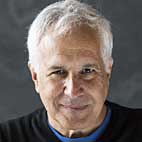
PROFILE
Biosketch:
Jeff W. Lichtman is Jeremy R. Knowles Professor of Molecular and Cellular Biology and the Ramón y Cajal Professor of the Faculty of Arts and Sciences at Harvard University. Lichtman is a developmental neurobiologist interested in the way in which experience alters nervous system organization in long lasting ways. He has participated in the development of a number of methods that describe neural connectivity at the level of individual synapses (connectomics) using fluorescence (e.g., Brainbow) and electron microscopical methods (e.g., ATUM). Lichtman graduated from Bowdoin College with a degree in Biology and from Washington University School of Medicine in 1980 with a Ph.D. in Neurobiology and a M.D. After postdoctoral work at Harvard Medical School, Lichtman joined the faculty of Washington University and remained there for twenty years before moving to his present position at Harvard in 2004. He is a member of the National Academy of Sciences.
Abstract:
Lichtman’s research focuses on the study of neural connectivity and how it changes as animals develop and age. With his colleagues he has developed a number of tools that permit synaptic level analysis of neural connections. These include activity dependent uptake of fluorescent dyes, transgenic approaches to label individual nerve cells, and “combinatoric” methods (e.g., DiOlistics, Brainbow, and NPS) to label many nerve cells in the same tissue. In addition, he has helped develop automated electron microscopy approaches for large scale neural circuit reconstruction. These connectomic methods seek to make it routine to acquire neural circuit data in any nervous system. The central focus of his work is to describe the ways in which developing nervous systems change to accommodate information that is acquired by experience.
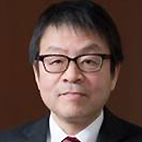
PROFILE
Education
M.D. (1981) - Osaka University (Japan) - Medicine
Ph.D. (1985) - Osaka University (Japan) - Cell Biology
Research and professional experience
01/04/2015-present National Institutes of Biomedical Innovation, Health and Nutrition, Director General,
01/04/2013-31/03/2015 National Institute of Biomedical Innovation, Director General,
01/04/2011-31/03/2013 Graduate School of Medicine, Osaka University, Dean
01/01/2008-31/03/2013 Laboratory of Biomolecular Networks, Graduate School of Frontier Biosciences, Osaka University, Professor, and Department of Biochemistry, Graduate School of Medicine, Osaka University, Professor
01/04/2002-31/12/2007 Laboratory of Biomolecular Networks, Graduate School of Frontier Biosciences, Osaka University, Professor, and Department of Cell Biology, Graduate School of Medicine, Osaka University, Professor
01/04/1999-31/03/2002 Department of Cell Biology and Neuroscience, Graduate School of Medicine, Osaka University, Professor
16/02/1993-31/03/1999 Department of Cell Biology and Anatomy, Osaka University Medical School, Professor
16/12/1992-15/02/1993 Institute for Molecular and Cellular Biology, Osaka University, Professor
16/09/1991-15/12/1993 Institute for Molecular and Cellular Biology, Osaka University, Associate Professor
16/01/1986-15/09/1991 Institute for Molecular and Cellular Biology, Osaka University, Assistant Professor
01/04/1985-15/01/1986 Institute for Molecular and Cellular Biology, Osaka University, Postdoctoral Fellow
Research Interests
Nucleocytoplasmic transport of proteins
Nuclear organization and dynamics
Structure and function of nuclear pore complex
Cell differentiation and cell reprogramming
Cell stress response and nuclear transpor
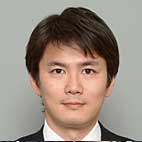
PROFILE
Ph.D., Biophysics, Osaka University, 2003
Postdoctoral Fellow, CREST JST and Osaka Univ., 2004-2006
Assistant Professor, Osaka Univ., 2007-2009
Design Department, Nikon Corporation, 2009-2015
Marketing Department, Nikon Corporation, 2016
角田 達彦 / 東京大学 大学院理学系研究科 教授
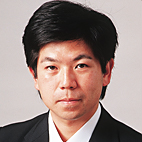
PROFILE
He graduated from the Faculty of Science, the University of Tokyo (1989), was educated in elementary particle physics (1989-1991), and obtained his Ph.D.s (1995 in Engineering, and 2007 in Medicine). After researching as an Assistant Professor at Kyoto University (1995-1997), he started research on human genome sequence analysis as a Research Associate at the Institute of Medical Science, The University of Tokyo, and on cancer gene expression as an Assistant Professor (1998-2000). He led both the Laboratory (2000-2013) and the Research Group (2011-2013) for Medical Informatics at the RIKEN Center for Genomic Medicine. He leads the Research Group for Medical Science Mathematics, RIKEN Center for Integrative Medical Sciences (2013-present). In July 2015, he became a full Professor, Department of Medical Science Mathematics, Medical Research Institute, Tokyo Medical and Dental University (2015-present). From April 2019, he is a full Professor, Department of Biological Sciences, Graduate School of Science, The University of Tokyo (2019-present). He did and has been doing pioneering works in: haplotype block analysis in the first genome-wide association study (Nature Genetics 32:650-654, 2002); analysis of linkage disequilibrium patterns in the whole human genome (Human Molecular Genetics 13:1623-1632, 2004); the international HapMap project (Nature 449:851-861, 2007); and the first whole genome sequence and comprehensive analysis of a Japanese individual’s genome using a next-generation sequencer (Nature Genetics 42:931-936, 2010). Also, he applied the analysis method to liver cancer genomes for finding new etiologies and sub-classifications of the cancer (Nature Genetics 48:500-509, 2016). The most recent exciting topic was transforming genomic data to image data for applying them with deep learning (Scientific Reports, 9, 11399, 2019). Currently, he is challenging the topic of omic-data integration for precision medicine.
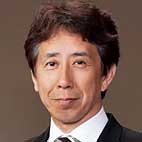
PROFILE
MITSUO KAWATO received a B.S. degree in physics from Tokyo University in 1976 and M.E. and Ph.D. degrees in biophysical engineering from Osaka University in 1981. From 1981 to 1988, he was a faculty member and lecturer at Osaka University. From 1988, he was a senior researcher and then a supervisor in ATR. Since 2003, he has been Director of ATR Computational Neuroscience Laboratories. Since 2004, he has been an ATR Fellow. In 2010, he became Director of ATR Brain Information Communication Research Laboratories. In 2018, he was jointly appointed as a Special Advisor, RIKEN Center for Advanced Intelligence Project (AIP). For the last fifteen years he has been working in computational neuroscience and neural network modeling.
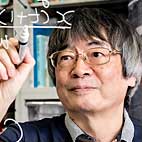
PROFILE
Kazuyuki Aihara received the B.E. degree of electrical engineering in 1977 and the Ph.D. degree of electronic engineering 1982 from the University of Tokyo, Japan. Currently, he is Professor of Institute of Industrial Science, Deputy Director of International Research Center for Neurointelligence, Professor of Graduate School of Information Science and Technology, and Professor of Graduate School of Engineering at the University of Tokyo, and Special Advisor of RIKEN Center for Advanced Intelligence Project (AIP). His research interests include mathematical modeling and analysis of such complex systems as the brain and cancer, and nonlinear analysis of complex big data.
谷口 維紹 / 科学技術振興機構 研究開発戦略センター 上席フェロー
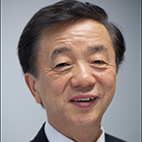
PROFILE
Taniguchi obtained his Ph.D. degree from University of Zurich (Switzerland). He then moved to Cancer Institute, Japanese Foundation for Cancer Research in 1978. In 1984, he moved to Institute for Molecular and Cellular Biology, Osaka University, as Full Professor. In 1995, he took the position of Professor and Chair at the Department of Immunology, Faculty of Medicine, The University of Tokyo. He then moved to Department of Molecular Immunology, Institute of Industrial Science, The University of Tokyo, as Project Professor. Since 2019, he holds the current position.
He received numerous awards, including the 1986 Hammer Prize (U.S.A.), the 1991 Robert-Koch Prize (Germany), the 2000 Japan Academy Prize (Japan), the 2006 Pezcoller Foundation-AACR International Award for Cancer Research (Italy/ U.S.A). In 2009, he was bestowed the Person of Cultural Merit award from the Government of Japan. He is Foreign Associate Member of the National Academy of Sciences, USA, from 2003, International Member of the National Academy of Medicine from 2016 and Associate Member of EMBO from 2018. He also holds Honorary Doctrate degree of University of Zurich (Switzerland) and University of Verona (Italy). He published more than 50 papers in Nature, Cell and Science in the fields of immunology and cancer research.





